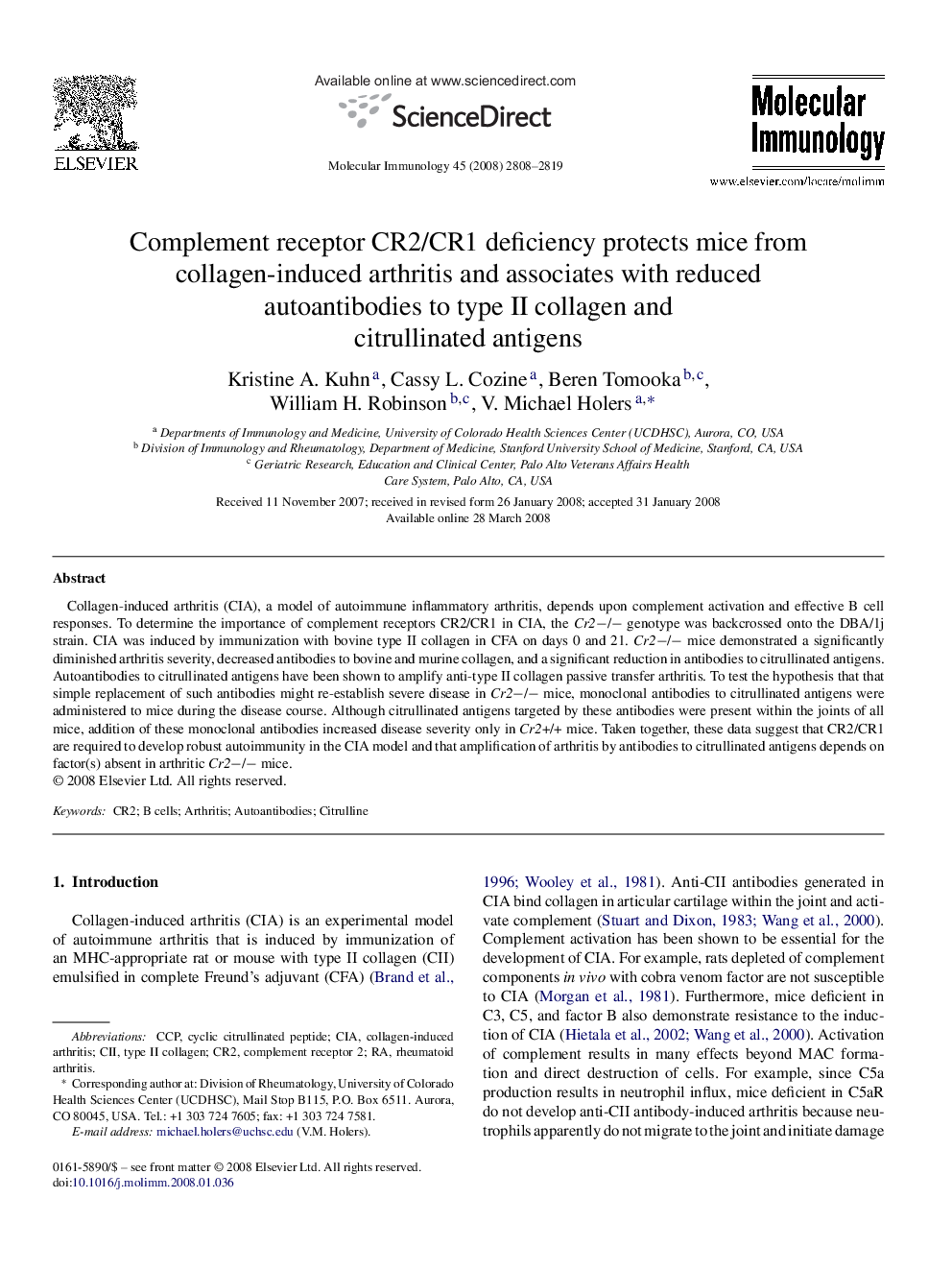| Article ID | Journal | Published Year | Pages | File Type |
|---|---|---|---|---|
| 2832933 | Molecular Immunology | 2008 | 12 Pages |
Collagen-induced arthritis (CIA), a model of autoimmune inflammatory arthritis, depends upon complement activation and effective B cell responses. To determine the importance of complement receptors CR2/CR1 in CIA, the Cr2−/− genotype was backcrossed onto the DBA/1j strain. CIA was induced by immunization with bovine type II collagen in CFA on days 0 and 21. Cr2−/− mice demonstrated a significantly diminished arthritis severity, decreased antibodies to bovine and murine collagen, and a significant reduction in antibodies to citrullinated antigens. Autoantibodies to citrullinated antigens have been shown to amplify anti-type II collagen passive transfer arthritis. To test the hypothesis that that simple replacement of such antibodies might re-establish severe disease in Cr2−/− mice, monoclonal antibodies to citrullinated antigens were administered to mice during the disease course. Although citrullinated antigens targeted by these antibodies were present within the joints of all mice, addition of these monoclonal antibodies increased disease severity only in Cr2+/+ mice. Taken together, these data suggest that CR2/CR1 are required to develop robust autoimmunity in the CIA model and that amplification of arthritis by antibodies to citrullinated antigens depends on factor(s) absent in arthritic Cr2−/− mice.
